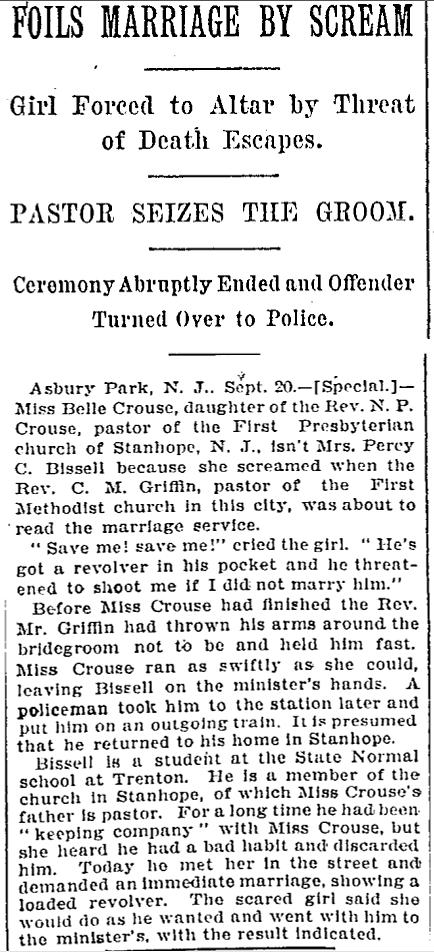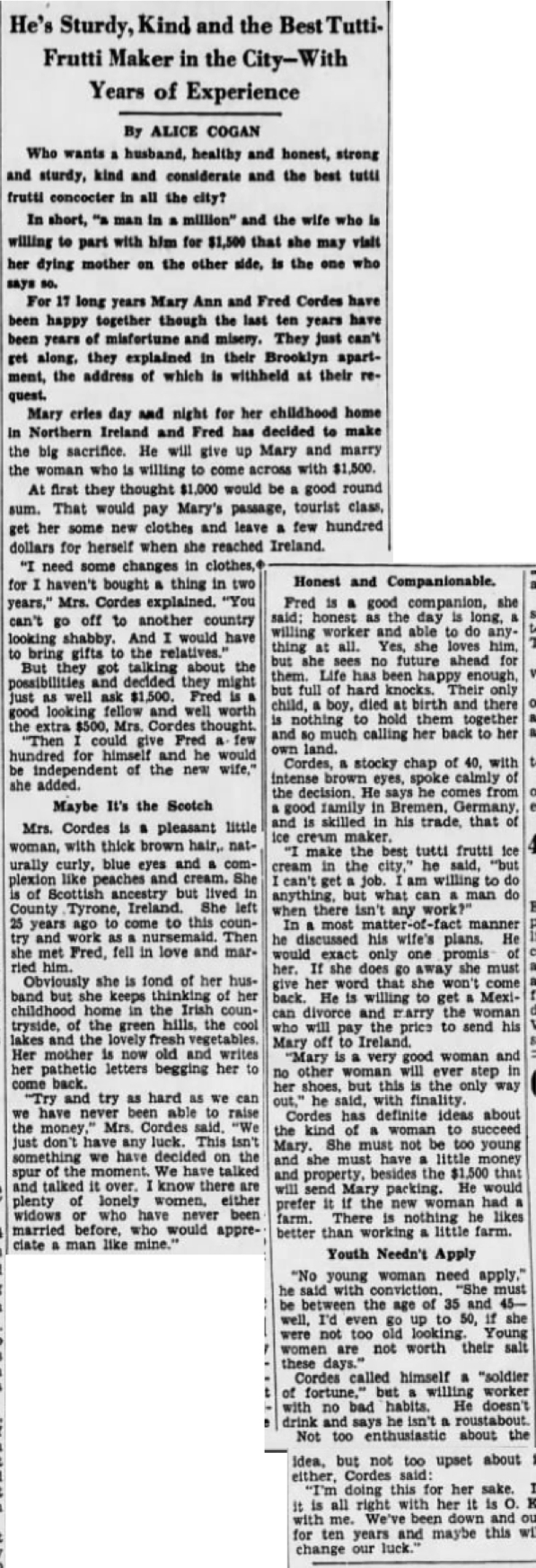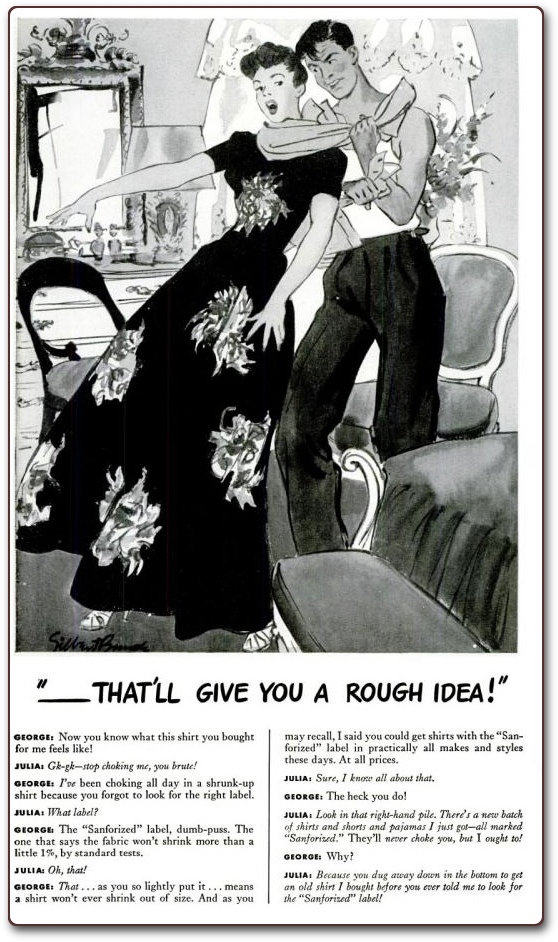Marriage
Jail-Jamas

Original ad here. (Page 2)
Posted By: Paul - Sun Feb 08, 2015 -
Comments (6)
Category: Costumes and Masks, Fashion, Stupid Criminals, Marriage, 1950s
Marital Bliss

Source: The Coshocton Tribune - Mar 20, 1937
Posted By: Alex - Fri Dec 05, 2014 -
Comments (4)
Category: Husbands, Wives, Marriage, 1930s
Wedding foiled by scream
About a year ago I posted about a wedding at which the bridegroom dropped dead of a heart attack right after saying "I do." I thought that had to qualify as one of the worst weddings ever, but this one is pretty bad also. As reported in the Chicago Tribune - Sep 21, 1907.
Posted By: Alex - Sat Sep 06, 2014 -
Comments (4)
Category: Marriage, 1900s, Screams, Grunts and Other Exclamations, Weddings
Follies of the Madmen #228
The cliche is: Swedes know everything about coffee--and sex. So that household should be a happy one, with busybody Mrs. Olson supervising the kitchen and, offstage, the bedroom.
Posted By: Paul - Sun Aug 31, 2014 -
Comments (9)
Category: Business, Advertising, Products, Domestic, Marriage, Coffee and other Legal Stimulants, Busybodies, Snoops and Kibitzers, 1960s
Husband For Sale
1935: Mary Ann and Fred Cordes weren't doing too well with their marriage. But instead of just getting a divorce, like normal people, they (well, it was mostly Mary Ann's idea) hatched a plan to sell Fred for $1500 to any woman willing to buy him. Mary Ann hoped to use the money to travel to Ireland, her childhood home.I don't know how their plan turned out. It's one of those stories that never got a follow-up in the press. But I can't imagine women were lining up to pay $1500 to acquire "all the rights" to a 40-year-old unemployed ice-cream maker.

Time - Aug 26, 1935

The Brooklyn Daily Eagle - Aug 14, 1935
Posted By: Alex - Wed Aug 06, 2014 -
Comments (14)
Category: Divorce, Marriage, 1930s
Look for the Sanforized label!
From Life magazine - Sep 15, 1941:
GEORGE: I've been choking all day in a shrunk-up shirt because you forgot to look for the right label.
JULIA: What label?
GEORGE: The 'Sanforized' label, dumb-puss. The one that says the fabric won't shrink more than a little 1% by standard tests.
Posted By: Alex - Mon Jun 23, 2014 -
Comments (7)
Category: Advertising, Marriage, 1940s
Conjugal Duels
From Charles Harper, Revolted Woman: Past, Present, and to Come (1894):
The images of the conjugal duelists come from Hans Talhoffer's Fechtbuch, 1467 (plates 242-250). [Via Wondermark]
Posted By: Alex - Mon Nov 04, 2013 -
Comments (7)
Category: History, Husbands, Wives, Marriage
Bob’s Birthday
Posted By: Paul - Fri Feb 24, 2012 -
Comments (5)
Category: Domestic, Marriage, Humor, Cartoons, 1990s
It Takes All Kinds
Posted By: Paul - Thu Sep 30, 2010 -
Comments (2)
Category: Marriage, 1950s
The Strange World of Divorce

Posted By: Nethie - Sat Jul 31, 2010 -
Comments (4)
Category: Anniversary, Centuries, Ceremonies, Weddings, Customs, Foreign Customs, Marriage

| Who We Are |
|---|
| Alex Boese Alex is the creator and curator of the Museum of Hoaxes. He's also the author of various weird, non-fiction, science-themed books such as Elephants on Acid and Psychedelic Apes. Paul Di Filippo Paul has been paid to put weird ideas into fictional form for over thirty years, in his career as a noted science fiction writer. He has recently begun blogging on many curious topics with three fellow writers at The Inferior 4+1. Contact Us |




